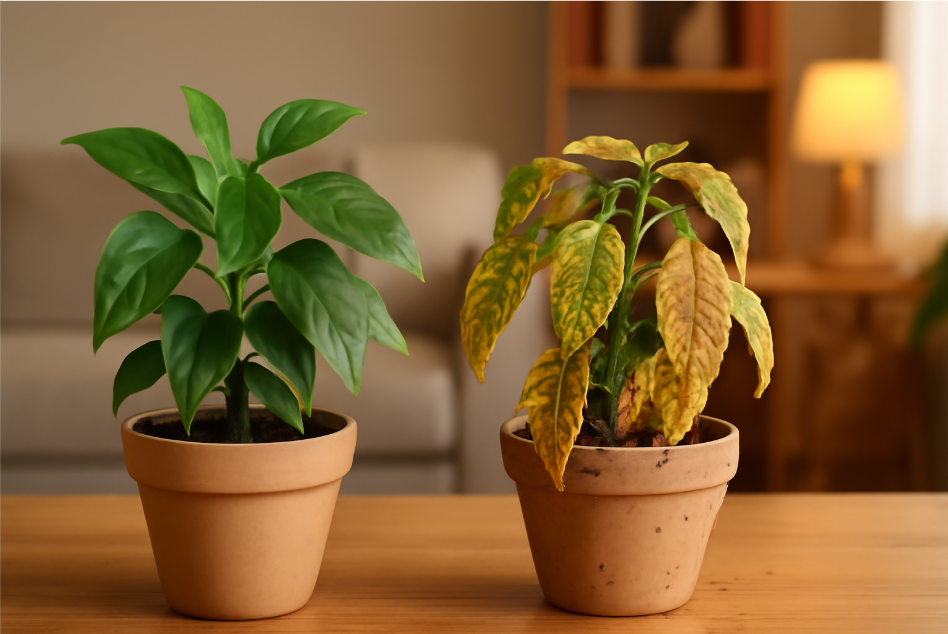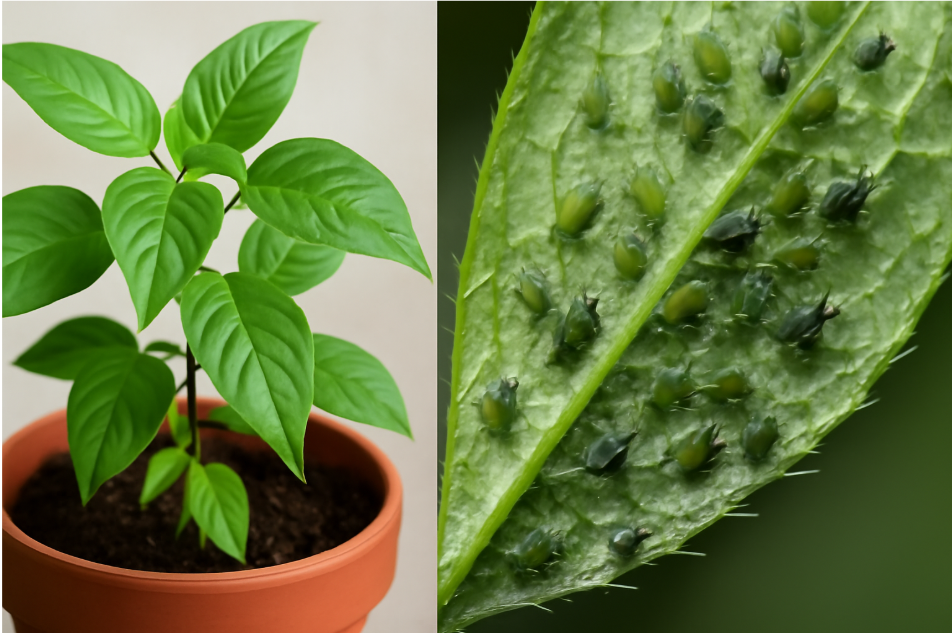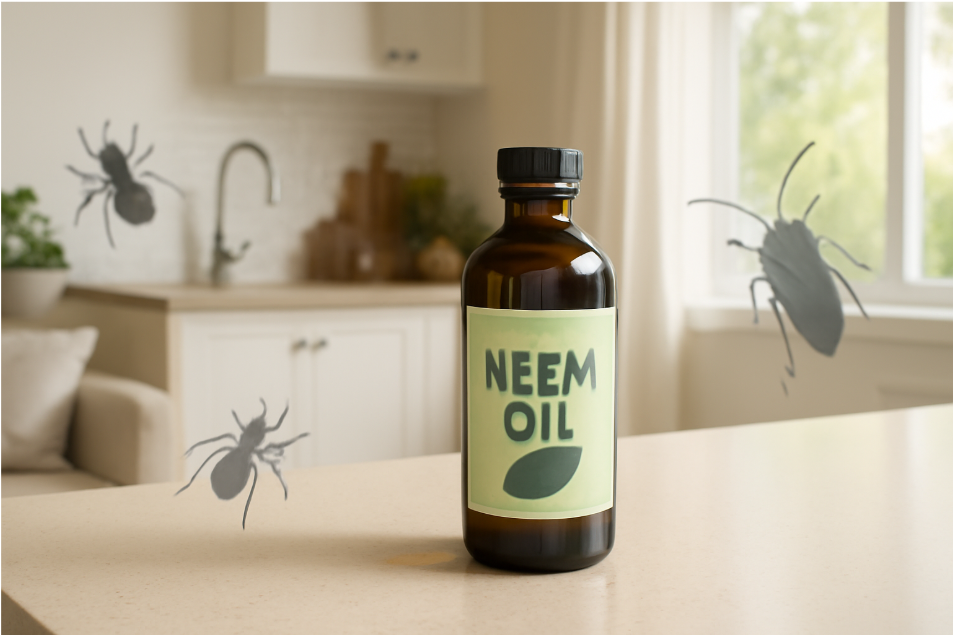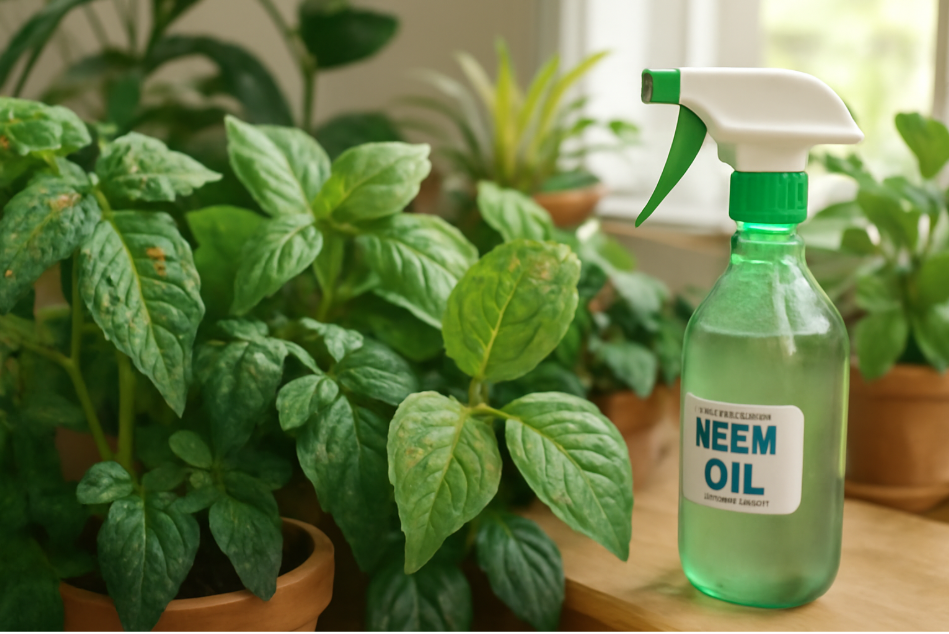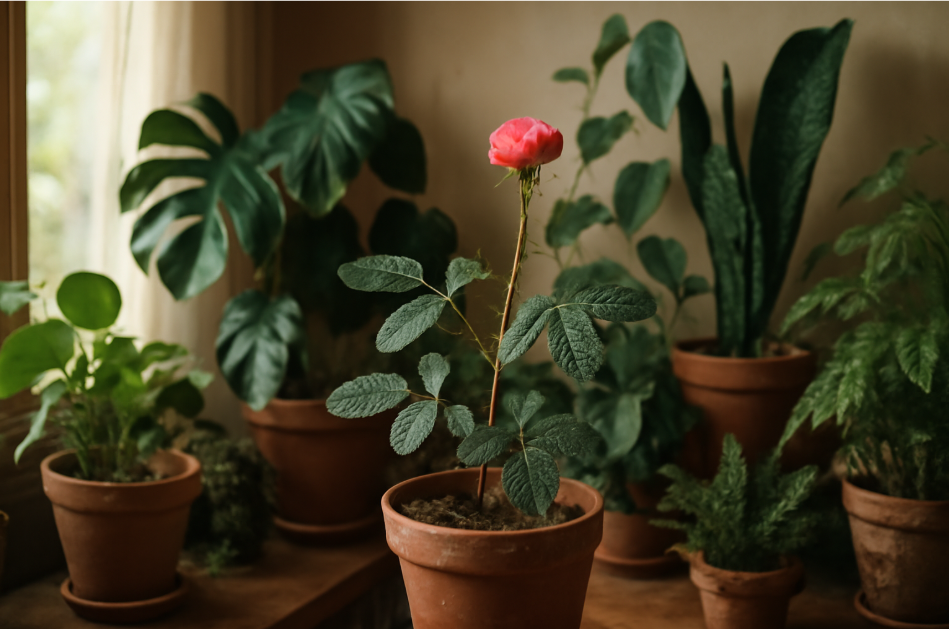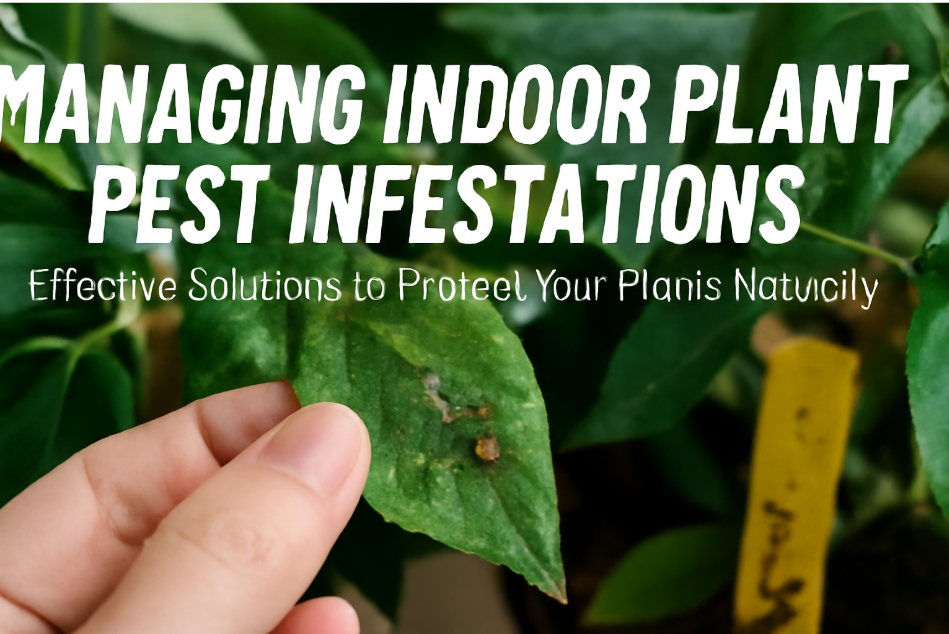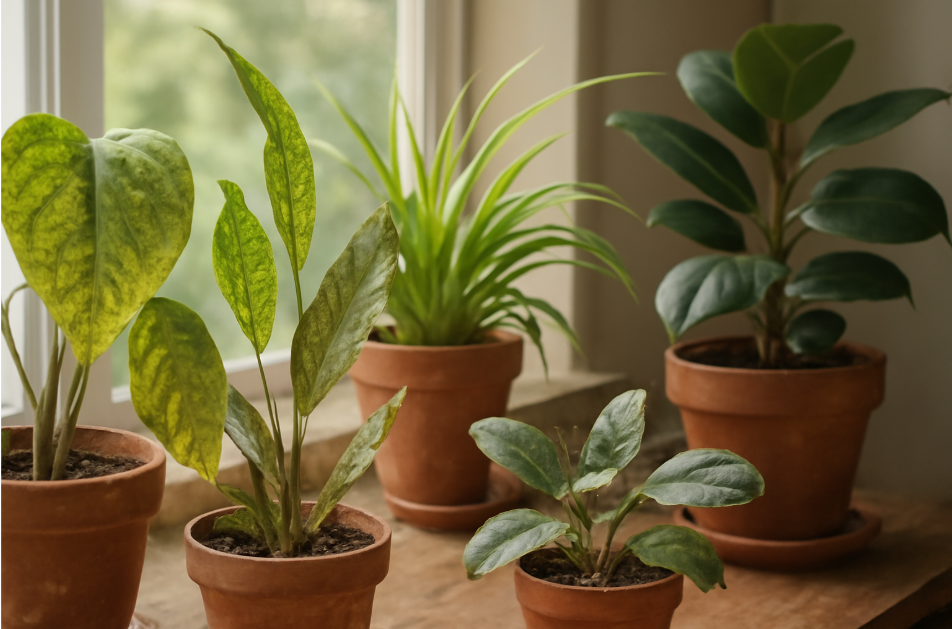Houseplants add beauty, provide fresh air, and increase beauty to your homes. They clean the air, reduce stress, and even increase productivity. However, when pests invade, they can disrupt this harmony. The common pests that attack your plants, such as aphids, spider mites, or fungus gnats, will make indoor gardening frustrating for you. While chemical pesticides might seem like a quick fix, they can pose risks to your health, pets, and the environment. Fortunately, there are natural ways to control pests safely and effectively.
The below guide will help you identify some common houseplant pests and learn natural pest control for houseplants remedies to keep your plants healthy.

Common Houseplant Pests and Their Signs
The best protection for your plants is early identification of pests. Here are the usual suspects and what to look for:
Aphids
These soft-bodied insects congregate on new leaves or under leaf surfaces. They suck plant sap, causing yellow or deformed leaves and stunted growth. Over time, their secretions can lead to mold, further damaging your plants.
Spider Mites
Tiny insects that weave webs on plants and prefer dry conditions. They cause yellowing, which then causes leaves to dry up and fall off. They can quickly build up in population, so catching them early is paramount.
Fungus Gnats
Small flying insects that resemble mosquitoes. Adults are merely annoying; the larvae feed on plant roots, causing wilting and stunted growth. The most common issues arise in overwatered or poorly drained soils.
Mealybugs
White, cottony masses on joints of leaves. They cause yellowing, wilting, and sticky leaves by sucking sap. Heavy infestation often weakens plants.
Scale Insects
Hard-shelled pests that attach themselves to stems and leaves to suck sap and excrete a sticky honeydew-attracting mold. Often not readily noticed since they resemble a shell.
Thrips
Small, elongated insects with a sucking mouthpart; scrape the leaf surface and cause silvery or speckled discoloration, often damaging tender new growth. A little early recognition will save you from their spread.

Why Use Natural Pest Control Methods?
Natural methods of pest control have become popular for several excellent reasons:
- It does not use harmful chemicals which may be hazardous to health.
- Some solutions use common household items such as baking soda or garlic.
- It will not harm the soil or environment and would also spare useful insects such as bees and ladybugs.
Plants Health: No chemical residue in the soil, better nutrient intake, and healthy plants.
Sustainability: It encourages indoor gardening over the long-term while being environmentally sensitive.
You create a safe and sustainable environment for your indoor garden by going natural.
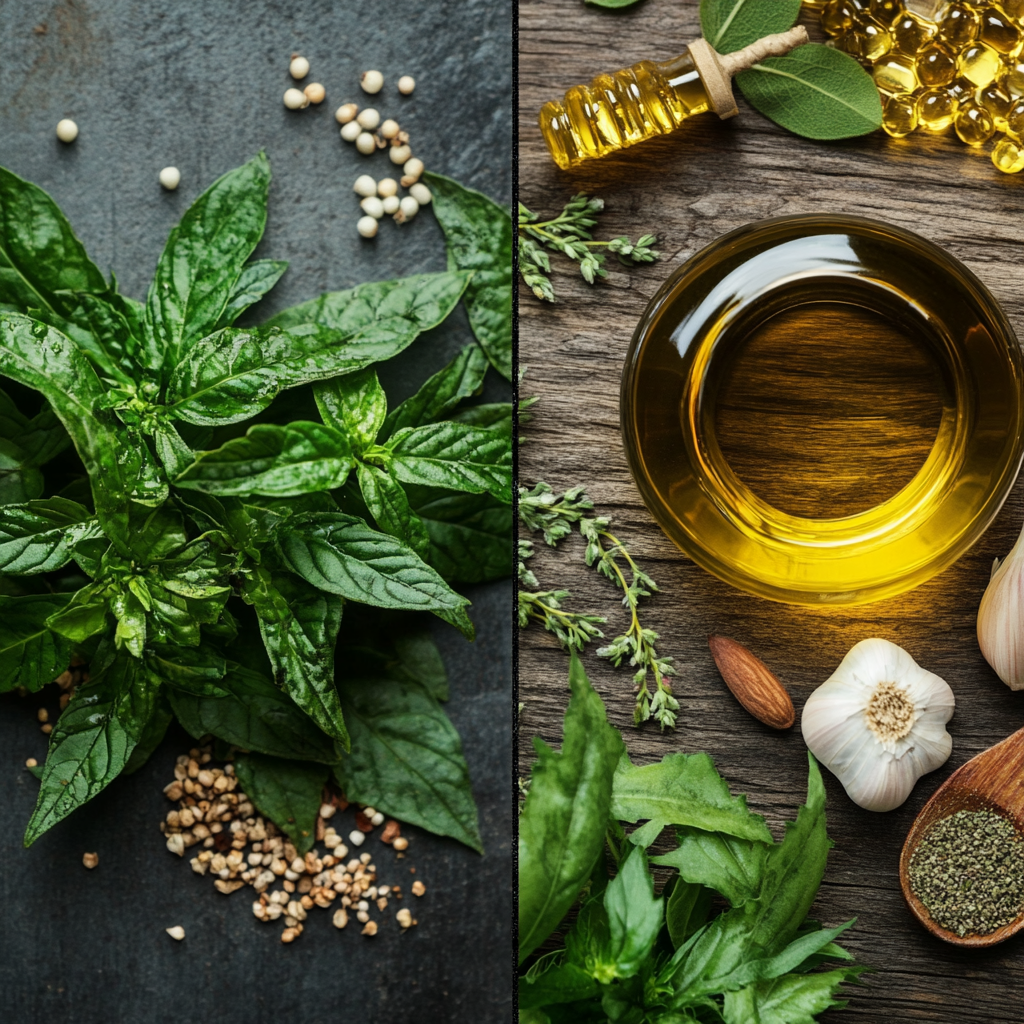
Effective Natural Pest Control Methods
Following are some of the time-tested natural remedies to repel houseplant pests:
Neem Oil Spray
Neem oil interrupts the insect’s life cycle and suffocates them.
Recipe: 1 teaspoon neem oil, 1 quart water, and a few drops of dish soap.
How to Use: Spray on all infected areas, including the underside of leaves. Repeat weekly until gone.
Best For: aphids, spider mites, mealybugs, and scale insects.
Insecticidal Soap
This is because the soap dehydrates them by breaking their outer layer.
Recipe: 1 tablespoon of liquid dish soap to 1 quart of water.
How to Use: Spray on pest insects, especially under the leaves. Rinse plants with water in a few hours to prevent leaf burn.
Best Against: Aphids, spider mites, mealybugs.
Garlic and Chili Spray
These components can repel several pests by their strong nature.
Recipe: Blend 2 cloves of garlic and 1 chili in 1 cup of water, strain, and dilute with 1 quart of water.
How to Apply: Spray on pests weekly as needed.
Best For: Aphids, spider mites, and fungus gnats.
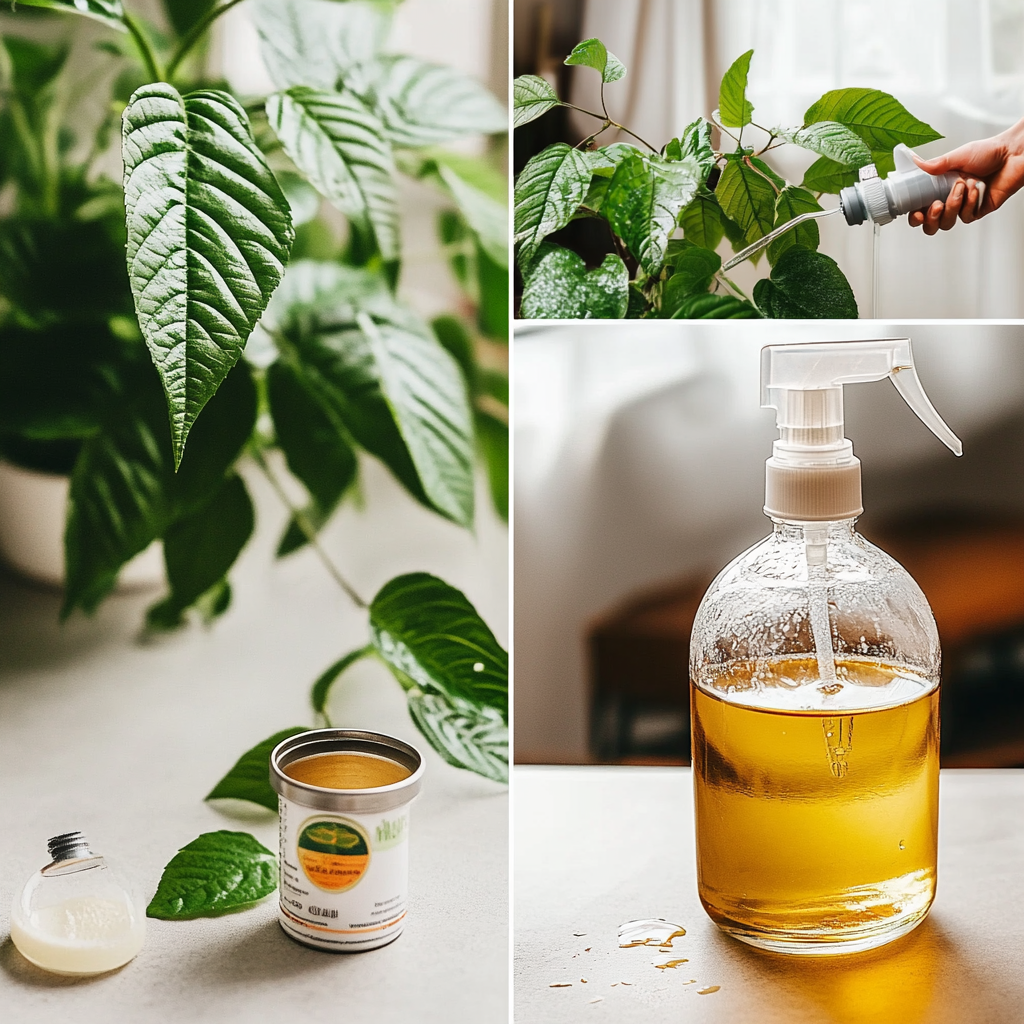
Baking Soda Solution
Perfect for fungal diseases such as powdery mildew.
Recipe: Mix 1 teaspoon of baking soda, 1 quart of water, and a few drops of dish soap.
How to Use: Spray on affected areas weekly until resolved.
Best For: Fungal infections.
Essential Oil Sprays
Essential oils, such as lavender, peppermint, and tea tree oil, can deter pests.
Recipe: Add 10–15 drops of essential oil to 1 quart of water, plus a few drops of dish soap.
How to Apply: Spray foliage and soil surface.
Best For: Aphids, Spider Mites, Fungus Gnats.
Biological Controls
Introduction of natural predators for example:
- Ladybugs: Effective against aphids and spider mites.
- Nematodes: Target fungus gnat larvae in soil.
- Parasitic Wasps: Great for controlling scale insects and mealybugs.
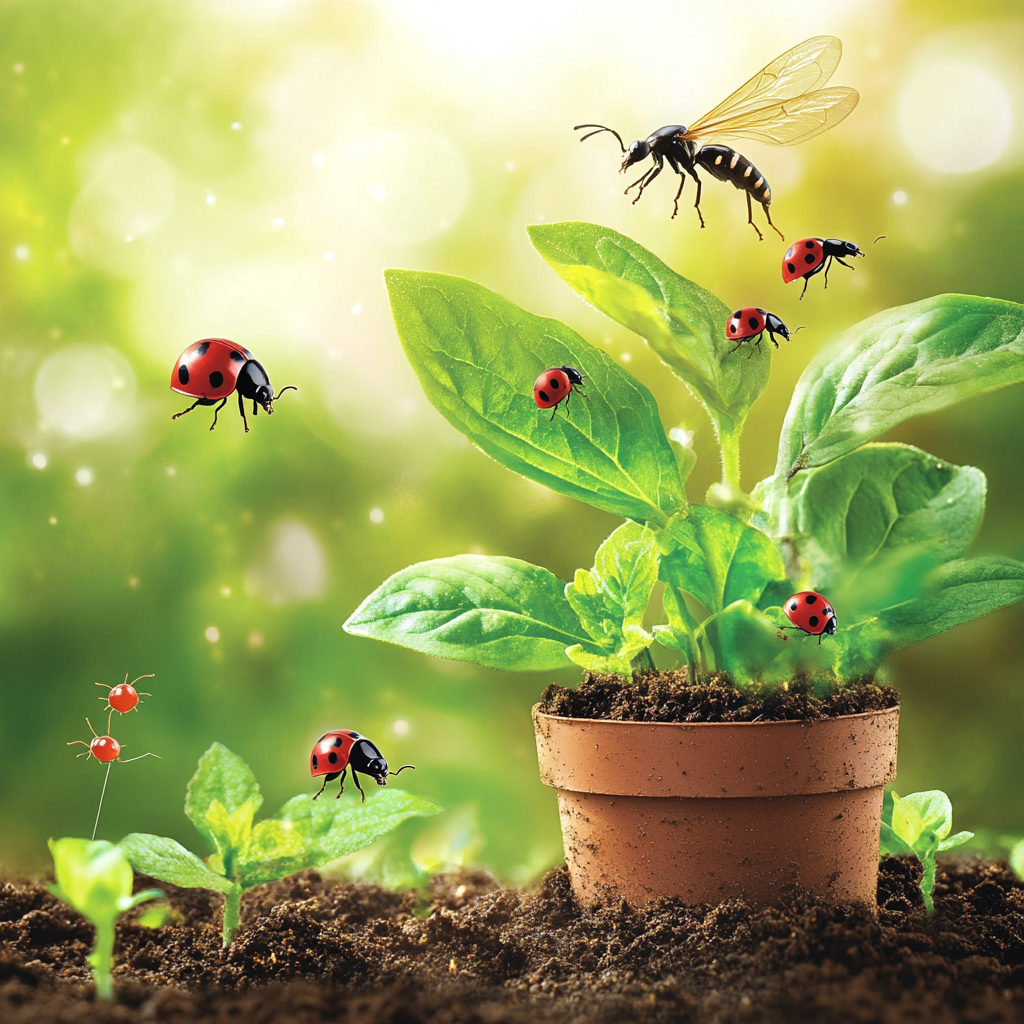
Diatomaceous Earth (DE)
This powders damages pests’ exoskeletons, causing them to dehydrate.
How to Use: Sprinkle a thin layer on soil and plant surfaces. Reapply after watering.
Best For: Fungus gnats, mealybugs, and scale insects.
Rubbing Alcohol Treatment
Alcohol kills pests on contact.
How to Use: Dab pests with a cotton swab dipped in alcohol or spray a mixture of 1 part alcohol to 3 parts water.
Best For: Mealybugs and scale insects.
Advanced Pest Prevention Tips
Beyond basic prevention, here are some long-term strategies to keep pests at bay:
- Use Sterilized Soil: Use fresh and sterilized potting soil to avoid bringing in pests or their eggs.
- Plant Companion Herbs: Basil, mint, and rosemary all naturally repel certain kinds of pests.
- Regular Repotting: Repot plants every 1–2 years to avoid soil buildup in which pests can reside.
- Natural Barriers: Sprinkle cinnamon on top of soil to deter fungus gnats and mold.

When to Call in a Professional
Sometimes, the presence of pests requires skilled expertise:
- When pests persist even after treatments.
- When several plants show severe damage.
- When working with rare or resistant types of pests, such as thrips or whiteflies.
For severe cases, try eco-friendly pest control services or organic pesticides.
There is no need to use injurious chemicals to keep houseplants safe. Natural remedies of neem oil, garlic sprays, and insecticidal soap will help you control pests while keeping your home safe. Advanced strategies include bio-controls and sterilized soil that add to your pest control toolbox.
By taking precautionary measures and acting in time, you make sure your plants are healthy and blooming. Now, start applying them to experience a sustainable and lush indoor garden! Share your tips with others to motivate them toward natural methods for pest control.






